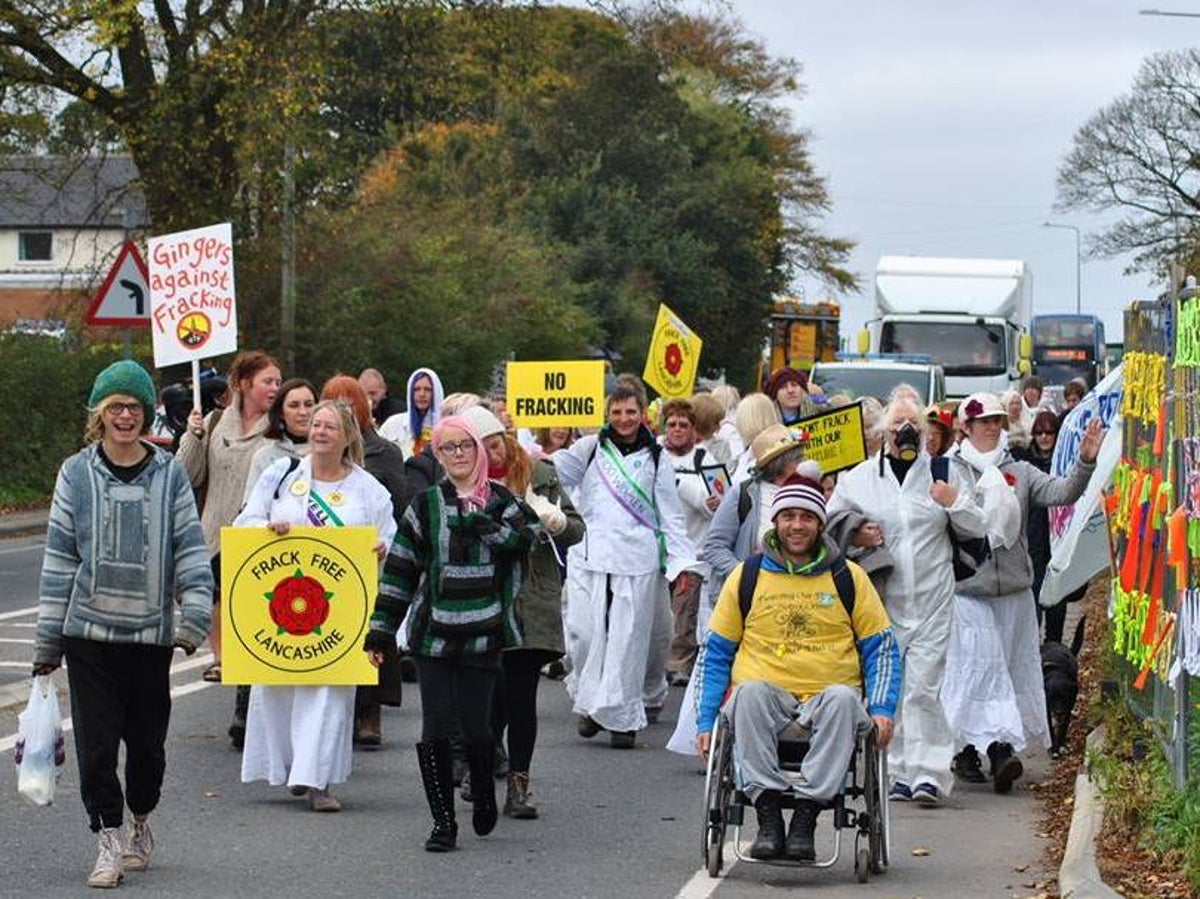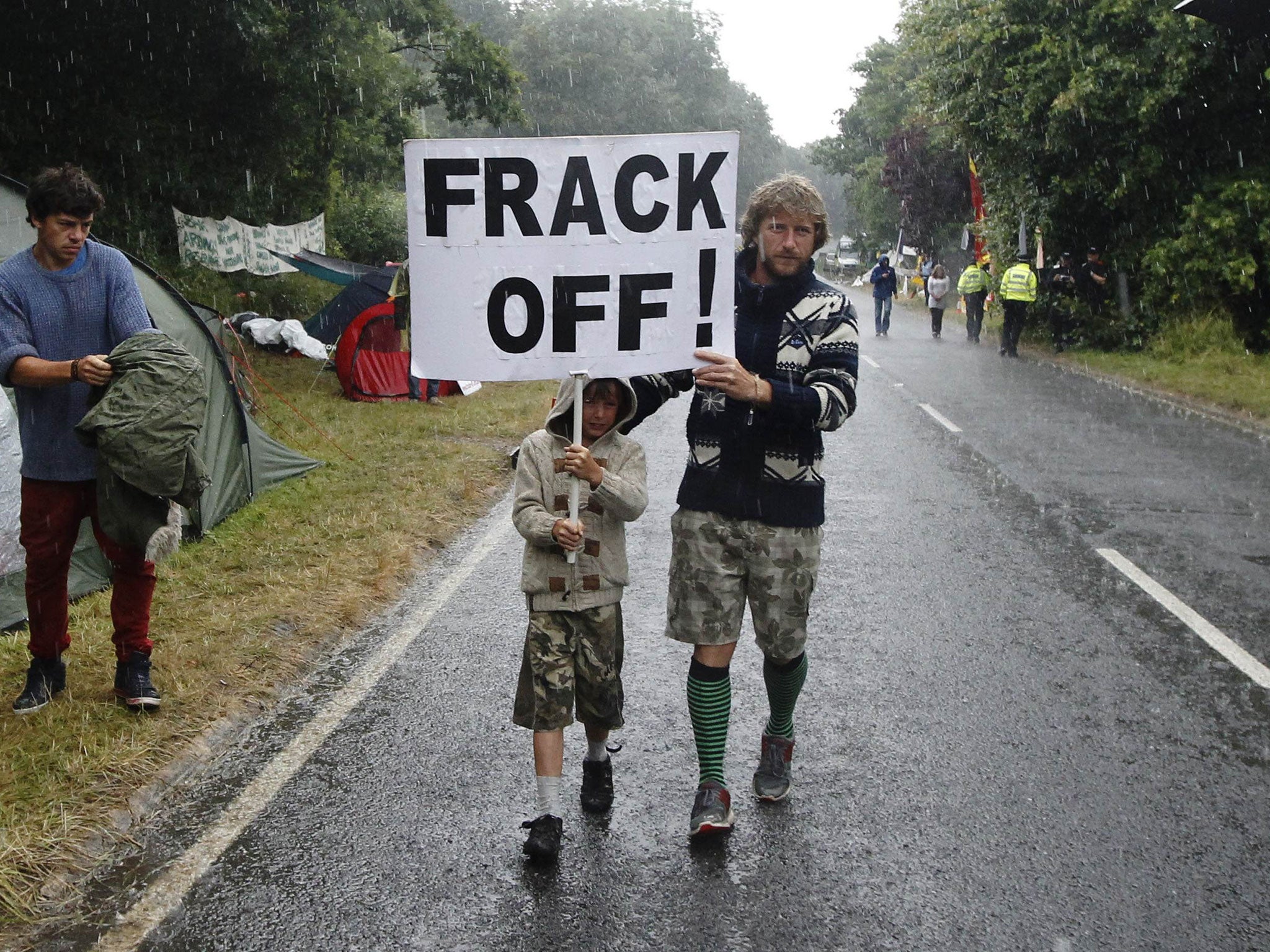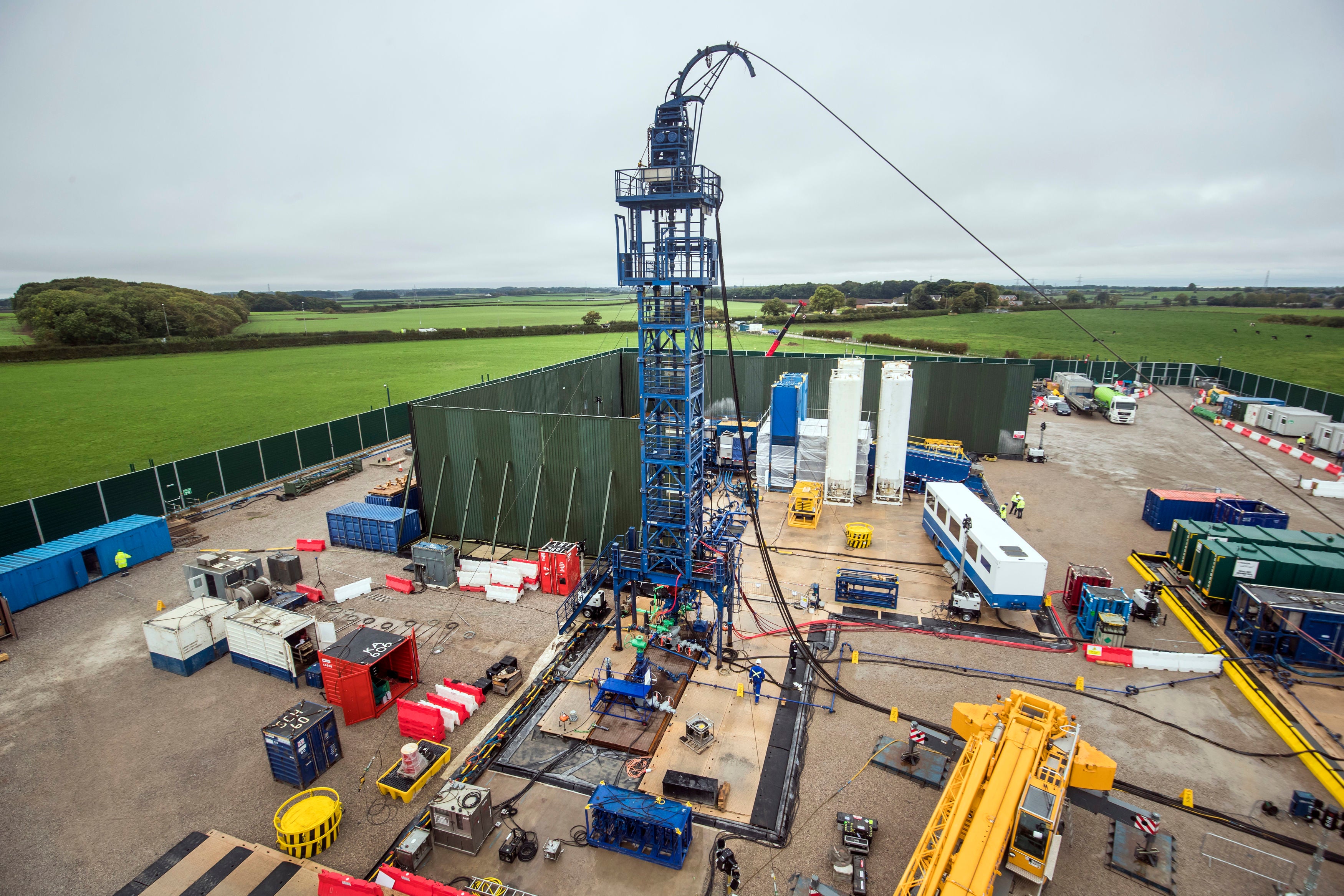
Anti-fracking campaigners across the country have vowed to take up the fight against drilling once more after Liz Truss reneged on a manifesto promise to keep the process banned.
The new prime minister scrapped the commitment on Thursday as part of plans to boost the UK’s energy security amid spiralling bills and potential shortages.
But those who previously led the fight against fracking - a process known to cause earth tremors - say they are ready, willing and determined to once more oppose the creation of what would be a new fossil fuel industry in the UK.
“I spent seven or eight years of my life battling this,” said Barbara Richardson of Frack Free Lancashire. “And it was constant, and it was exhausting. But I’m ready to fight again. We’re all ready to fight again – because it’s too important not to.”
Indeed, while various politicians and environmental groups have pledged to oppose Truss’s plans, it is arguably people like Richardson – a retired grandma of one – who will cause the government the biggest headache.
For six long, hard years up to 2019, she was among a group of local women – the self-proclaimed Lancashire Nanas – who, perhaps more than anyone else, was instrumental in getting the process banned in the UK.
The group formed to stop two fracking sites: at Roseacre and, more famously, Preston New Road (PNR), near the village of Little Plumpton. They held mass demonstrations, created hugely popular petitions and, for a brief period, occupied the developing PNR site. Oft-dressed in yellow tabards and head scarves, they created a sprawling protest camp, organised weekly vigils attended by hundreds of local people and blockaded vehicles headed for wells.
“If you want to slow a truck down, have someone with a Zimmer frame walk in front,” one Nana, Tina Rothery, told The Independent at the time. “The police don’t want to manhandle an old lady who looks like she has brittle bones or a colostomy bag. They don’t want the mess on their hands – literally.”
Eventually, in 2019 - after the group helped highlight how exploratory drilling had caused more than 15 significant tremors in just two weeks - the government backed down with ministers effectively banning fracking not just in Lancashire but across the country.
At a stroke, it meant an end to dozens of exploratory operations across the country, from Dorset to Northumberland - including in Lincolnshire, Nottinghamshire, Cheshire and South Wales.

Now, industry insiders suggest Preston New Road – which was operated by British energy company Cuadrilla – could be one of the first sites which sees a new application made.
Although it has largely been deconstructed, the wells have not been capped and it is thought it would take relatively little work to get it up and running again.
“If they think we’re too tired to take them on again, they have another thing coming,” said Richardson. “My main emotion right now is that I’m tied at the thought we’ll have to do it but it’s also anger that everything we did and all the arguments we won are being taken away by one person’s say-so, Liz Truss. And determination not to keep going. Absolute determination.
“If the government and the energy companies think we will lie down on this, they do not understand the determination of either us or protestors across the country. We’ve stopped this once and we’ll stop it again.”
Tensions run high on the issue because fracking – the process of using high-pressure chemicals to extract shale gas from underground rocks – has long been controversial.
Opponents say that apart from causing major earth tremors, the environmental damage includes vast toxic waste (hundreds of truck journeys are needed to transport it to specialist treatment sites), potential pollution of water supplies (as happened in the US) and high-level emissions in an age of climate crisis.
Only two operational sites have ever been opened in the UK. One was Preston New Road, which was shut following those tremors in 2019. The other was the Preese Hall-1 well in Blackpool, which was shut in 2011 - also following tremors.
“Twice fracking has been tried here and twice it has resulted in a national moratorium,” said Mark Menzies, the Tory MP whose Fylde constituency includes Preston New Road. “That is no coincidence. The last seismic event here was 250 times the industry agreed safe limit, releasing 3,000 times more energy.”

The government’s proposals to overcome this opposition may include offering benefits to communities where wells are opened – including money off energy bills.
Yet Dave Shaw, the founder of Frack Free South Yorkshire – which fought eight proposed sites in the decade up to 2019 – called the suggestion a “bribe” and said it would not work.
“It won’t wash,” the Doncaster Labour councillor said. “People are not going to accept living in a seismic zone for the sake of a couple of hundred quid off their bills. It is not going to make the slightest bit of difference to them. The only way fracking will happen is if it’s forced on local people – and we will do everything in our power to stop that happening.”
He wondered if Ms Truss even really believed in fracking as a route out of the country’s energy problems.
“It would contribute so little that I suspect this is nothing more than a show of political allegiance,” he said. “It is a signal to the right of her party that she is on their side.”
For now, although the prime minister has said the process could potentially be restarted within “as soon as six months”, Shaw himself remains relatively relaxed.
“As a potential industry fracking was wound down in 2019 and I don’t think these companies can just start up again,” he said. “I think it would take significant new investment and re-skilling so that gives us time to research, re-organise and get prepared for whatever comes.”







